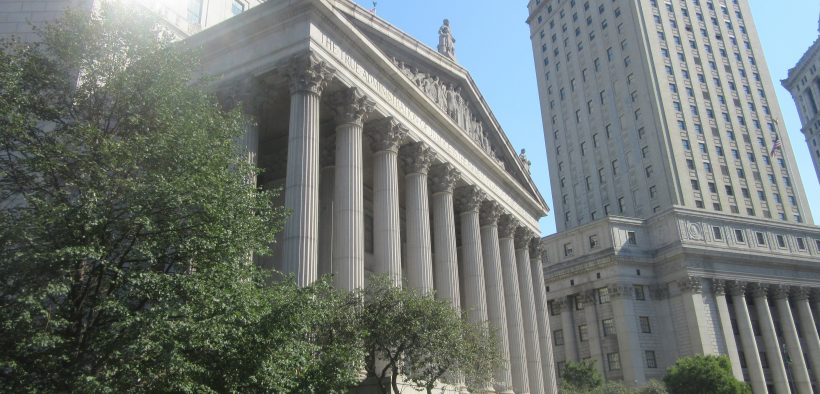Supreme Justice?
Share

By: Justin White
Associate Justice Antonin Scalia, 79, was found dead at a west Texas resort due to natural causes. The first Italian-American Justice will likely be remembered as the staunchly conservative “originalist,” interpreter of the Constitution, as well as for his colorful dissents. What would normally be a time of mourning has launched our country into a contentious debate on who should nominate Scalia’s replacement.
Congress is fighting the President’s decision to nominate a Justice, and from their perspective it makes sense. With President Obama’s final term coming to a close, does it really make sense for him to appoint a Justice that could have a significant impact on our future political landscape? GOP members of Congress began plans to block an appointment immediately after Scalia was announced dead, stating no nominee would be considered despite the Constitution clearly defining the President’s responsibility to make such an appointment. The idea is to delay until after the election cycle in hopes that a Republican Presidential winner can nominate a conservative judge, essentially filling Scalia’s ideologically role. However, these assumptions are dangerous for the GOP for two reasons.
First, recent conservative appointments have been considerably disappointing for the GOP. Specifically, Chief Justice John Roberts, who voted in the majority upholding the Affordable Care Act, and Associate Justice Anthony Kennedy, who swung to the majority legalizing marriage equality. It’s also worth considering the Republican front-runner, Donald Trump, doesn’t exactly toe the party line, often at odds with establishment GOP members. Say Republicans prevent the nomination and get their candidate into the Oval Office. Can they really trust Trump to make the right nomination?
The second is that an Obama nominee is likely to be considerably more moderate by Democratic standards. Republicans still have the majority in Congress as well as the Senate Judiciary Committee, meaning that if the President makes a liberal appointment it’s likely Congress would reject the nomination by majority vote. If the nomination isn’t confirmed then Democrats sacrifice their chance at a Justice, so a moderate could be the preferred choice. Importantly, if the GOP put all of their power into blocking a nomination just for another Democrat to take office then their efforts were for nothing. Should the GOP risk losing what could be a sure-fire moderate in a gamble for the Oval Office?
This situation has to weigh heavy for Congress. Should the President make a nomination and Congress vet that candidate in accordance with the Constitution? While an answer might seem obvious the Senate’s track record suggest they will delay as long as possible or prevent a nomination altogether. Ironically, this situation would have infuriated Justice Scalia. Scalia stood for the words written in the Constitution, and as the longest serving Supreme Court Justice, he stood by his beliefs even when they were wildly unpopular among the majority of Americans. Honoring this man’s incredible legacy to uphold the law should demand putting political opportunity aside, acknowledging the Constitution’s authority whether it benefits Congressional leaders or not. What will be decided, for the Court and the country, remains to be seen.
